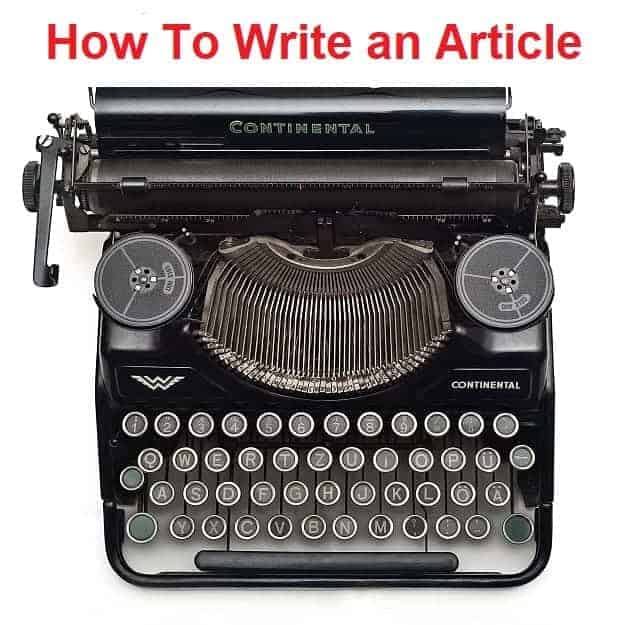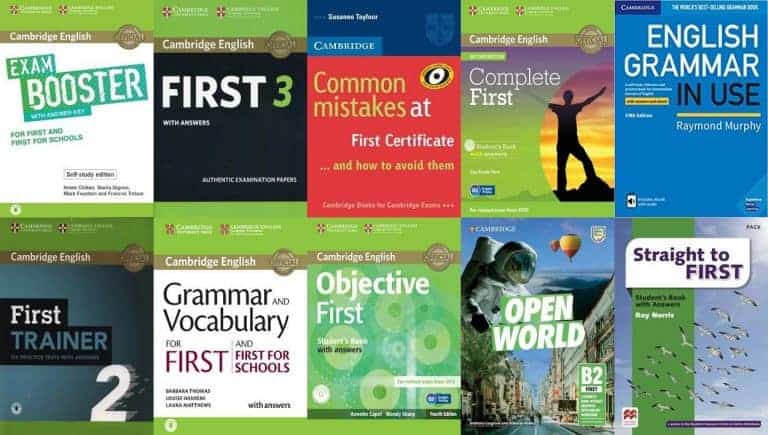Writing
One of the most unpopular things to do in an English class is to do a writing task. You can almost be certain that at least one student is going to complain or simply refuse to do it. Luckily, in FCE, writing is necessary and most students understand this as well. Even though they don’t enjoy it, they bite their tongue and do what they have to do. After all, you don’t want to fail the because of your own laziness. 😉
The great thing about writing in FCE is, however, that you can collect a lot of marks if you study the different writing tasks beforehand. The various types of writing tasks in the exam have very specific criteria in terms of content, register (formal/informal language), organisation and layout as well as the grammar and vocabulary you should or shouldn’t use. Knowing these characteristics can help you a lot and, in my opinion, will deliver the marks you need to pass quite easily.
So, compared to Reading & Use of English or Listening this exam paper is rather beneficial for candidates and I’m going to help you get the most out of it.
Time management is key
Writing is one of the exam papers in which you need to manage your own time. This can become quite difficult as you have to complete to different pieces of writing in 80 minutes, which means that you have 40 minutes for each task.
Your very first takeaway from this article should be that it is super important to prepare for writing the same way you would prepare for the other exam papers in FCE. Study what the requirements are, practise as much as you can and work on your weaknesses so your skills are balanced and you can take the test with a calm mind and without feeling stressed because of your time management.
With this out of the way, let me give you broad idea of what the writing exam looks like in the context of the whole exam as well as the different tasks within the exam paper.
The different parts of the writing exam
Cambridge B2 First includes five different parts that are broken up into four exam papers:
- Reading and Use of English
- Writing
- Listening
- Speaking
Writing is, together with Reading and Use of English, the paper in which you have to manage your own time, finish two pieces of writing within just 80 minutes. Each of these two pieces of writing needs to be between 140-190 words in length, or 280-380 words in total. As there are five different parts to the exam, Writing counts 20% towards your overall grade.
In the writing paper there are two parts, the first one being an essay and the second one your choice of several possible types of writing.
Part 1
Part 1 of the writing exam is a compulsory essay. In this task the focus is on agreeing or disagreeing with a statement, supporting your own argument with reasons and examples, clearly stating your opinion, comparing different opinions as well as drawing conclusions.
Part 2
In the second part of the writing paper you get three options which you have to choose one task from. There is a variety of types of writing and you will not always get the same options, so make sure that you are ready for all of them.
1. Article
In an article you should show your opinion or comment on the topic. Your language should be interesting and engaging and you normally have to imagine that the reader has similar interests as you, the writer.
2. Email/letter
The email or letter is always a reply to message that you get in the task. You have to ensure that you respond to everything mentioned in the original message, that your language is appropriate (formal/informal) depending on the reader, and that you follow the common rules for a letter or email, for example including a greeting and salutation, etc.
3. Report
You usually have to write your report to either a superior like the director of your college or to peers, such as your English club. The tone is normally quite neutral and you need to give a factual description of the topic as well as make recommendations or suggestions.
4. Review
A review is mostly for a newspaper, magazine, newsletter or a similar publication. You should give your opinion about an experience you have had like a holiday, film, book, restaurant, etc. as well a description or explanation of what you are writing about. At the end of the task, you usually have to include a recommendation of some sort.
- Cambridge B2 First (FCE): How to Write an Email/Letter
- Cambridge B2 First (FCE): How to Write an Essay
- Cambridge B2 First (FCE): How to Write a Review
- Cambridge B2 First (FCE): How to Write a Report
- Cambridge B2 First (FCE): How to Write an Article
- Cambridge B2 First (FCE): How to Write an Email/Letter
- Cambridge B2 First (FCE): How to Write an Essay
Don’t panic just yet 🙂
I know that this seems to be a lot for you to process all at once, so for the rest of this article I’m going to go back to more general information. As I mentioned at the beginning of this post, there are more specific articles about the different writing tasks. Just pick the ones you are most interested in below and find out how to become a champion FCE candidate.
Marking
How Cambridge examiners mark writing tasks is a little bit of a mystery and, as far as I know, they are not even allowed to talk about it. There are some very basic rules and guidelines for you to understand, though, and I will try to show them here in the easiest way possible. Remember, this information is more for teachers and examiners than for students, but let’s have a look anyway.
The four assessment scales
When an examiner looks at your writing tasks they mark it by looking at four different categories, each of which cover one aspect of your writing. The four categories are:
- Content
- Communicative achievement
- Organisation
- Language
For each part you can get up to 5 marks, so that makes it 20 marks in total. Under each of our four headings we can group certain smaller criteria.
1. Content
Under Content the examiner checks if you have done what the task asked you to do. Did you answer the question completely? Is the reader fully informed?
2. Communicative achievement
Here you need to show that you can use the conventions of the task. Did you write an essay or does it look more like an article? Did you use the appropriate register or is your language too formal/informal? Are your ideas clear? Is your writing interesting and holds the reader’s attention?
3. Organisation
Organisation is all about…well…organisation. Is your text written in paragraphs? Are your ideas connected? Is there a logical sequence of ideas? This is one of the parts candidates struggle with the most, but in my post on the different marking criteria you get much more detailed information with great examples, so jump over and check it out.
4. Language
In the language section you get marked on you ability to use grammar and vocabulary. Did you use a variety of grammatical structures? Did you try to use more advanced structures as well? Did you repeat the same vocabulary all the time or showed a wide range?
How can you prepare for the writing exam?
There are many great ways to get yourself ready for the writing exam in FCE, but all of them require you to work for it. All the different skills in English need practice if you want to improve so don’t think that you can easily do this. Put in the work and you will experience how quickly your writing changes from OK to really good.
1. Reading
The easiest way to practise for the writing exam is probably to read regularly. I still don’t understand how so many people want to study English, but they are simply to lazy to spend 10 minutes per day on reading. Not only does a regular reading habit improve your comprehension skills, but it also exposes you to so many different grammatical structures and expressions which are amazing for your writing so you only have to be a sponge and absorb all the language.
Of course, this is easier said than done. You should always include an active element in your reading practice. This means that you should set a little task for yourself every time you sit down with a book, magazine, newspaper or in front of your computer. My recommendation is to either highlight new expressions and grammar and then to check it online or in a good grammar book, or to read and then summarise the text in your own words by writing a short paragraph. Believe me, it works.
2. Websites
There are quite a few websites out there where you can practise some writing, but my favourite is Lang-8.com. Here you can write as much as you want whenever you want and native speakers correct your writing for free. If this doesn’t sound amazing, then I don’t know what is.
3. Classes
For those of you who want to go the classic route I can definitely recommend language classes. Learning in groups can be really engaging or even working individually in a private class can help you a lot with you preparation for the exam. Just search for English language schools near you online, ask them for a free trial and see if it is the right thing for you.
This is just the beginning
There is a lot of information in this post, I know. Especially when you start your Cambridge journey, it can be absolutely overwhelming and even scary once you realise how much there is to know and to study.
The best part about this is that you don’t have to worry because you have come to the best place. Whatever you need to know about Cambridge B2 First I’ve got you covered. With the right tools, tips and tricks you can definitely achieve your goal and pass the exam. I have prepared more articles for you about the different writing tasks and I would be happy if you read them too.
Lots of love,
Teacher Phill 🙂







